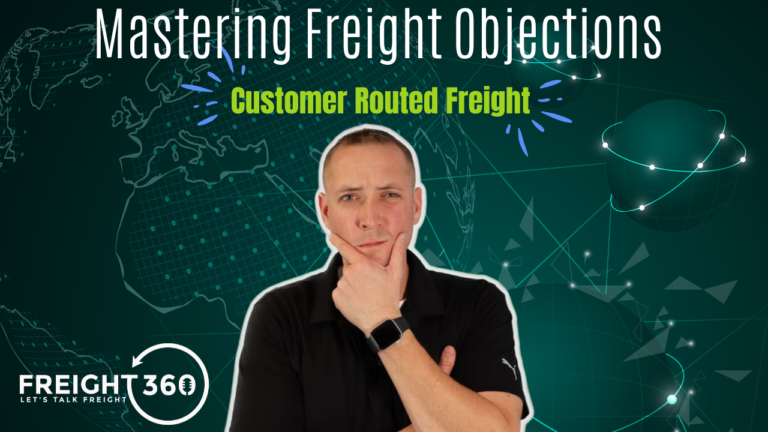As a freight broker, you’ll need to accomplish three main tasks to ensure they are properly set up to conduct business. First is your licensing. You’ll need to be granted your operating authority from the Federal Motor Carrier Safety Administration (FMCSA). Next, you’ll need to acquire either a freight broker surety bond or set up a trust fund with a value of at least $75,000. Finally you’ll need to designate your process agents. In this blog, we’re focusing on that second step, but more specifically, getting your freight broker surety bond.
What is a Freight Broker Surety Bond?
A surety bond, similar to bonds in other industries, is a product with a cash face value that will pay out to a specific party in the case of default of some sort of payment or action. Think about bail bonds as a quick example. A judge might set bail for a person at $10,000. This means that they need to post $10,000 as a promise to return to court, rather than stay behind bars. If that person shows up to court, they get their money back. If they don’t, they lose the $10,000. If someone doesn’t have $10,000 to spare, they can go to a bail bondsman to front the money for them, usually at a cost of around 10% or in this case, $1,000.
For freight brokers, a surety bond has some similarities. If a freight broker opts to use a surety bond rather than a trust fund, the FMCSA requires the broker to secure a bond with a face value of at least $75,000. Proof of the freight broker’s surety bond will be filed with the FMCSA using Form BMC-84: “Broker’s or Freight Forwarder’s Surety Bond.” The bond is required to ensure brokers act ethically and that motor carriers get paid in the event that a broker fails to pay them. This could happen because of a broker’s cash flow issues, going out of business, or simply a dispute on a carrier rate. Since freight brokers usually pay carriers within 3-4 weeks after their services are performed, carriers are taking a risk by hauling loads in the hopes that they actually get paid. The bond requirement is in place to assure carriers that they will in fact receive payment for their services even if the broker fails to pay them directly. Bonds are technically an insurance product, and you’ll pay a bond company an annual premium to obtain one. The cost depends on your credit-worthiness, and typical premiums are 2-4% of the face value for new brokers. That equates to somewhere in the neighborhood of $1,500 to $3,000 per year for a $75,000 bond.
What is a Freight Broker Trust Fund?
Similar to a bond, a trust fund serves the same purpose for freight brokers. The difference here is how it’s funded. I mentioned that a bond is sold as an insurance product with an annual premium paid by the broker. Rather than pay an annual premium every year, you could opt to place $75,000 worth of collateral or assets into a trust fund. That $75,000 is earmarked for the same situations that the bond is. If you don’t pay a carrier, the trust will. If you are using a trust fund instead of a bond, you will fill out Form BMC-85: “Broker’s or Freight Forwarder’s Trust Fund Agreement.” If you plan on being in business for the long haul, the trust might be the better option to go with since you will eventually pay more for a bond in total over the years compared to putting your own assets into a trust. You don’t get bond premiums back, whereas the trust belongs to you forever. You can access the money if you decide to close shop.
How Does the Bond Work?
We covered some situations where the bond would be used. If you don’t pay a carrier their full rate for whatever reason, the bond is there to pay the carrier what they are rightfully due. In a straight-forward example, let’s say you don’t pay a carrier because you don’t have the money available or you close your business. In these cases, the carrier would file a claim on your bond to get paid. If it’s clear that you won’t be paying them, the bond company will pay out the owed money. Now let’s say there is a rate dispute between you and a carrier. Perhaps the carrier claims you short-paid them by a certain amount because they were owed detention or you deducted money from their settlement that they disagree with. They can still file a claim on your bond in these situations, but a representative from the bond company will act as an intermediary to settle the dispute. Both parties will present their evidence, and ultimately the bond company will make a determination of whether or not they will pay the claim as well as how much they will pay. Keep in mind, bonds aren’t just free money for brokers to have paid out on their behalf. If your bond pays out a claim, you are responsible to refund them the money. The bond option is simply there for brokers to avoid having to front $75,000 in a trust when starting their business.
How Do You Get Your Broker Bond?
This is the easy part. Since all brokers need to meet this requirement, and most don’t have $75,000 to tie up in a trust fund, almost every new broker will need to purchase a bond. For this exact reason, there are tons of bond companies for freight brokers to choose from. A quick Google search will set you up with a variety of surety bond companies. We recommend that you shop around since pricing can vary from company to company for the exact same product. So, that’s the freight broker surety bond in a nutshell.





